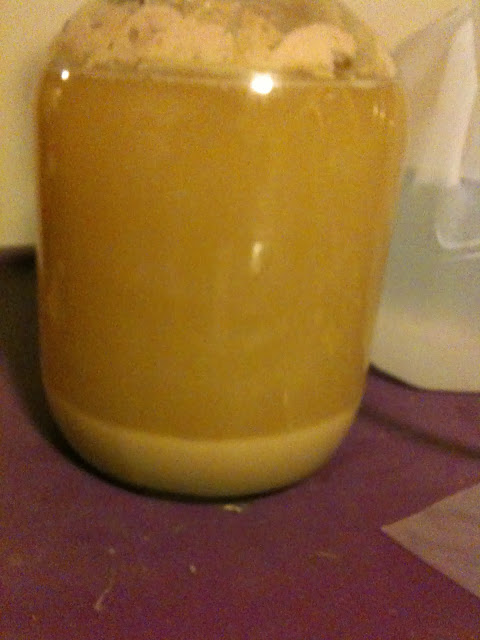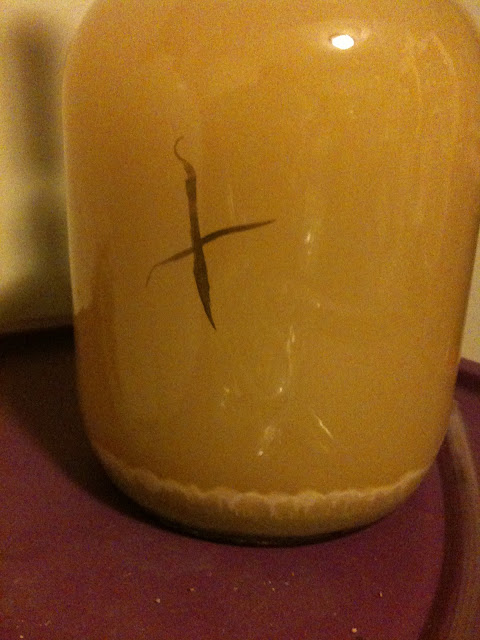Ok, now I'm curious. do either of you guy's think this beer would be better if it were carbed?
I still have 1 bottle from my 1 hour boil batch that has a NB Fizz Drop in it, actually. I'm going to crack that and see what it's like.
So here's the thing I thought about, though. If given enough time to have the trub settle out, then yeah I think the 3 hour boil version would be pretty good carbed up. It became a mellow, drinkable brew with great subtle flavors.
The problem with carbing it, that I see, is that the trub likes to form a sort of gelatinous blob in the bottom of the bottle, and if you carb this beer then that stuff's going to get all mixed up into the beer when you pop the top. That's what happened with my last bottle that had a Fizz Drop in it.
Washington says to "bottle it that day week it was brewed" and I assume he mistakenly wrote day when he meant week. I find no reference to a "day week" so it's not some old colonial term as best I can figure.
I honestly don't know if the recipe hints at carbonation, because Washington says to bottle it so early...my fermentation was never complete until well after a week in the fermenter (was actually more like 2 weeks). At 7 days in primary, mine was still bubbling - so it's quite possible that some light carbonation would result from bottling so early.
I just think the trub thing is weird. And with bubbles it might get gross.
My plan for my next batch is:
Do a protein rest - 20 minutes at 110F. Washington doesn't say to do it, and I have no idea if it will do anything with wheat bran, but I want to see if it helps with the trub blobs in the bottle.
3 hour boil
Leave in primary for 1-2 months (unless obvious that the blob of trub has now been resolved).
Carbonate 1/2 of the bottles, leave other 1/2 still. Compare the two after a couple of weeks.
I'm still hoping to get a "great!" version of this ready for the 4th of July this year.




 I'm glad your brew came out tasty! 3hrs it is!
I'm glad your brew came out tasty! 3hrs it is! 